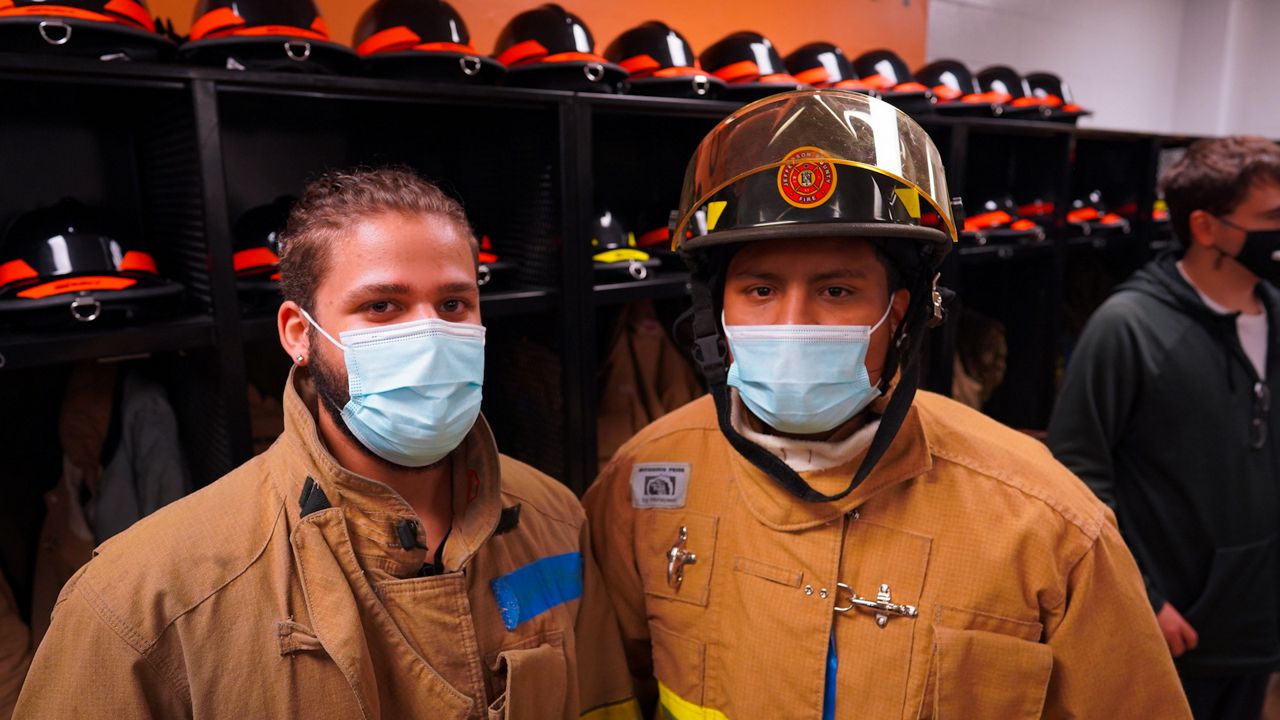LOUISVILLE, Ky. — High school students are use virtual reality to train for real life fire emergencies.
Virtual reality is being used to train future firefighters at several Jefferson County Public Schools (JCPS).
Fern Creek seniors are suiting up in the same firefighting gear as their professional counterparts. They dawn heavy fire-retardant pants and jackets, gloves and helmets but in this classroom setting they have a piece of gear the pros do not.
"Virtual reality is of the most exciting technologies I've used in my career and it aligns perfectly with JCPS's future state vision because of it's high level of engagement and it’s ability to immerse students in unique learning environments.," Jack Bosley told reporters. Bosley is JCPS's VR leader. Bosely assembled a demonstration of the VR tech and the Fern Creek students learning with it, students like senior Samuel Henson.
“I’ve learned a lot about fire prevention and hazmat," Henson said. Instead of putting out a real fire, Henson is is dousing a virtual one with reporters and members of the Fern Creek Fire Department looking on. Henson has been in the program since it was launched three years ago.

The VR technology simulates countless emergency situations and trains students in nearly every aspect of firefighting sans a real fire.
“It’s better preparing me for the real life ahead of me," Henson adds. But a career as a firefighter may have to wait a few years because Henson has already enlisted in the U.S. Marines. However Henson expects lessons he's learned in fire science will benefit his military career. “It’s just training and being prepared for what comes to you.”
Senior Francisco Sanchez is thinking strongly about being a full-time firefighter after high school.
“It’s a really good choice. I’ve thought about it and I really think I would like to become a firefighter," Sanchez said.
That's good news for Fern Creek Fire Chief Nathan Mulvey.
“Is there a shortage, yes. And we’re in the development of trying to incorporate and EMT program within this fire science program as well," Chief Mulvey said.
Not only is this program cultivating new recruits, a students classroom work would equal months of department training they would otherwise need to complete.
“They are able to get training done now while they're in school that would take them six months to two years after they graduated.”



